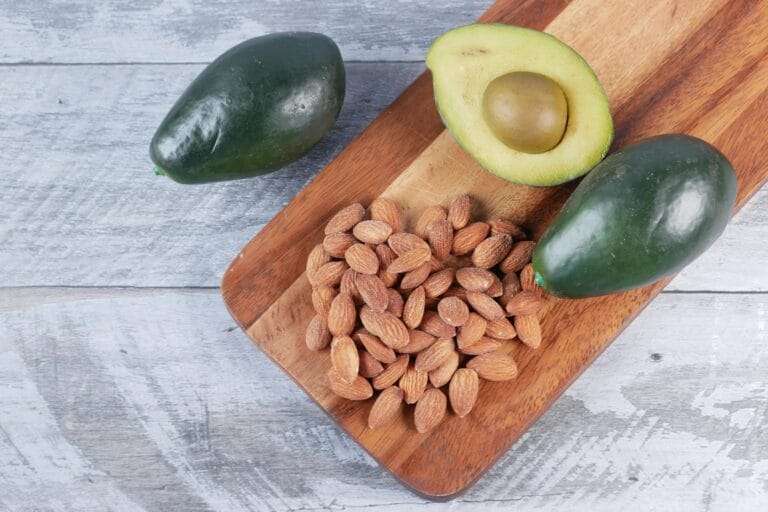FREE SHIPPING OVER $50
Does Coffee Break Your Fast? The Truth Every Intermittent Faster Needs to Know

You’ve committed to intermittent fasting (IF), you’re counting down the hours until your eating window, and you’re feeling focused—until that unavoidable mid-morning slump hits. Naturally, you reach for a cup of coffee. This ubiquitous morning ritual, however, comes with a nagging question that plagues almost every beginner (and even experienced) intermittent faster: Does coffee break your fast? It’s a simple question that has sparked endless debates, confusion, and anxiety within the weight loss community.
The short answer, as you’ll discover, is it depends. The truth is more nuanced than a simple yes or no, relying entirely on what you put into your cup and why you are fasting. Since the goal of intermittent fasting is not just about avoiding calories but often about triggering specific metabolic processes like autophagy and controlling insulin, knowing the exact rules for your daily cup of joe is crucial. Let’s dive into the science to settle this debate once and for all and ensure your coffee habit supports, rather than sabotages, your weight loss efforts.
The Science of Fasting: What It Means to “Break” a Fast
Before we evaluate the impact of coffee, we must clearly define the goal of intermittent fasting. While many people use IF for weight loss (by creating a natural calorie deficit), the true metabolic benefits lie in two key areas: insulin control and autophagy.
1. Insulin and Metabolic Switch
The primary mechanism that stops the “fasting state” is the release of insulin. When you eat food, especially carbohydrates, your blood glucose rises, signaling the pancreas to release insulin. Insulin tells your body to stop burning stored fat and start using the incoming glucose for energy. The key to successful fat burning during IF is keeping insulin levels low and stable, which allows your body to remain in a state of ketosis (burning fat for fuel). Any food or beverage that spikes insulin technically breaks the fast because it flips the “metabolic switch” from fat burning to glucose processing.
2. Autophagy: Cellular Cleanup
Autophagy is a vital cellular process where the body cleans out damaged cells and recycles the components. This process is generally believed to be maximized only in a completely energy-deprived state (true fasting). While the exact calorie threshold that stops autophagy is debated and complex, most experts agree that introducing calories or nutrients beyond a minimal amount will significantly suppress this cellular cleanup mechanism.
Therefore, the question “Does coffee break your fast?” is really asking: “Does coffee contain enough calories or nutrients to trigger an insulin response or suppress autophagy?”
Black Coffee: The Intermittent Faster’s Ally
Let’s start with the good news: plain, black coffee is overwhelmingly considered safe and even beneficial during a fast.
Minimal Calorie and Insulin Impact
A standard eight-ounce cup of black coffee contains a negligible number of calories—typically two to five calories. This minimal caloric intake is generally not enough to significantly raise blood glucose or trigger a substantial insulin response. Your body remains predominantly in the fat-burning state. For most intermittent fasting protocols aimed at weight loss and metabolic health, these minimal calories are ignored.
Boosted Fat Burning (Thermogenesis)
Not only does black coffee not break your fast, but it can actually enhance your weight loss goals. The caffeine in coffee is a well-known stimulant that offers two key benefits:
- Appetite Suppression: Caffeine naturally helps suppress hunger pangs, making it easier to power through the final hours of your fasting window.
- Thermogenesis: Caffeine can increase your resting metabolic rate and promote the mobilization of fatty acids, meaning it helps your body release stored fat to be burned as fuel. This supports the ultimate weight loss goal of IF.
The Verdict: If you are drinking pure, unsweetened black coffee, you can sip it freely during your fasting window.
The Hidden Saboteurs: 3 Ways You Ruin Your Fasting Coffee
The danger doesn’t lie in the coffee itself, but in the additions that many people automatically stir into their mug. These three categories of ingredients are the hidden saboteurs that will immediately flip the metabolic switch and break your fast.
1. Sugar and Sweeteners (The Insulin Spike)
This is the most obvious fast-breaker, yet it’s the most common mistake. Adding even a teaspoon of sugar, honey, maple syrup, or high-fructose corn syrup delivers pure glucose that rapidly spikes blood sugar and triggers the insulin response, effectively shutting down fat burning.
- What About Artificial Sweeteners? This area is debated. Zero-calorie sweeteners like Stevia, Erythritol, and Monk Fruit extract generally do not contain glucose and may not trigger a full insulin spike in the same way sugar does. However, some people report that the taste of sweetness alone can trigger a cephalic phase insulin response (a signal from the brain), or certain sucralose-based sweeteners might still affect insulin sensitivity. The safest bet is to avoid all sweeteners, but if you must use one, stick to natural, non-caloric options like stevia.
2. Dairy Creamers and Milk (The Calorie/Protein Threshold)
Adding milk, half-and-half, heavy cream, or flavored coffee creamers is a surefire way to break your fast.
- Lactose and Protein: Dairy contains lactose (a sugar) and protein. Both stimulate an insulin response, especially if the volume is more than a splash. Even a few tablespoons of cream can easily push your caloric intake above the universally accepted fasting threshold (often cited as 10 to 50 calories).
- Nut Milks: Most popular nut milks (almond, oat, soy) are loaded with added sugar and thickeners. Always check the label: if it has more than a few calories or any measurable sugar per serving, it will break your fast.
3. Bulletproof Coffee (The Autophagy Killer)
Bulletproof Coffee (coffee blended with butter and MCT oil) is popular among ketogenic dieters. It is a fantastic drink for keto energy, but it absolutely breaks your fast.
- The Calorie Load: This drink typically contains 200 to 400 calories from pure fat. While pure fat has a minimal impact on insulin, the massive caloric load immediately shuts down autophagy.
- The Goal Conflict: If your goal is purely weight loss and you are satisfied with only a low-insulin state, you might tolerate Bulletproof Coffee, but it sacrifices the benefits of cellular cleanup and the severe calorie restriction that drives significant weight loss during the fasting period. If you consume high-calorie fat, you are simply shifting your eating window earlier.
The Rule of Thumb: The 50-Calorie Limit
While there is no definitive, universally agreed-upon ruling for intermittent fasting, most leading nutrition experts recommend sticking to the 50-calorie rule as a practical guideline.
If your additive to the coffee keeps the total cup under 50 calories, it is unlikely to significantly interfere with the metabolic switch from carbohydrate burning to fat burning. However, remember that any calorie intake will suppress the deepest levels of autophagy.
Practical Application: If your primary goal is rapid weight loss, aim for zero calories (pure black coffee). If your goal is metabolic flexibility and appetite suppression, you have slightly more leeway.
The Best (and Safest) Coffee Additions While Fasting
If you simply cannot drink pure black coffee, there are a few additions that are generally accepted within the IF community:
- A Pinch of Cinnamon: Adds flavor without calories or sugar. Studies even suggest cinnamon may help stabilize blood sugar.
- A Dash of Salt: A tiny pinch can help neutralize the bitterness of black coffee and can be helpful for electrolyte balance during longer fasts.
- Zero-Calorie Spices: Vanilla extract (check for sugar content), nutmeg, or cardamom provide aromatic complexity without metabolic interference.
Conclusion
The fear that your daily cup of coffee will derail your intermittent fasting is understandable, but often unwarranted. Black coffee is not only safe but is a powerful tool for weight loss by boosting metabolism and suppressing appetite during the fasting window. The true danger lies in the hidden ingredients: the sugars, sweeteners, and high-calorie creamers that immediately spike insulin and stop the fat-burning process dead in its tracks. By mastering the distinction between pure black coffee and its sugary variations, you ensure your morning ritual becomes a dedicated ally in achieving your health and weight loss goals.
Related Articles
- Trying to Lose Weight? These 20 ‘Healthy’ Foods Are Secretly Sabotaging Your Progress
- Ditching This One Food Group Doubled Weight Loss in Just 8 Weeks, Study Finds
- Stop Counting Calories: The One Simple Food Swap That Controls Hunger and Melts Fat
- Why Cooking From Scratch Helps You Lose More Fat—Even Without Cutting Calories
- Allulose: The Sugar Swap Dietitians Say Could Help You Lose Weight Without the Crash







